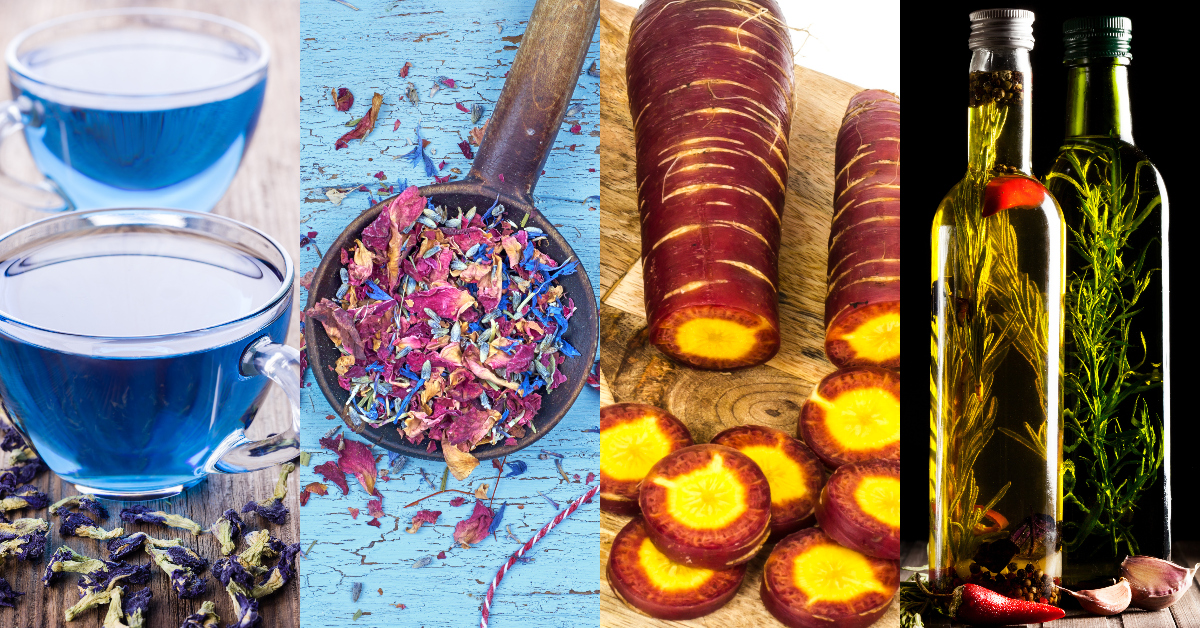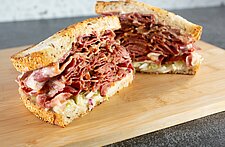The love for good food has become the number one topic for people today. As a result of the artisanal craft food movement and the chef-driven “gourmetization” of casual eating, the number of high-quality, innovative food options has exploded.
However, when it comes to culinary food shopping, there is still plenty of room for improvement. Knowledge and expectations around food have elevated what is perceived as premium. There’s higher demand for creative and thoughtful food options that can indulge refined and adventurous palettes. Culinary highlights promise a premium, multi-sensual change from everyday life, pushing the boundaries of flavor for a more exquisite, personalized experience.
Perhaps one of the greatest game changers for how we enjoy our food stems from Instagram. With over 1 billion monthly users and 500 million daily users across the world, the social photo-sharing app has been instrumental in shaping our desire to photograph and show off the beautiful moments we experience and consume. According to a study by Maru/Matchbox, 68% of millennials take pictures of their food before eating it.
The culinary industry today must take into account the “Instagrammable” quality of their product. As a result of this, we will continue to see restaurants take advantage of Instagram’s power to create socially driven dishes that incorporate more sensory aspects, creating an experience for diners that reaches beyond taste.
RELATED: Top Flavor Trends Driving Naturalness in 2019 and Beyond
As 2019 continues, expect to see plates and packaged goods boasting bright hues of purple and blue, thanks to an array of naturally colorful fruits and vegetables. From purple-colored carrots to cauliflower to asparagus, chefs incorporate these vibrant veggies for both a visual and healthful boost to a dish. Be on the lookout for huckleberries as well, due to the fruit’s beautiful color and flavor profile that ranges from tart to sweet, depending on the berry’s color.
One colorful ingredient brightening up cocktail menus across the country is butterfly pea flower. Known for its technicolor magic in beverages by transforming from deep blue to rich magenta with the addition of citrus, the Southeast Asian flower is used as more than just a healthful tea. Butterfly pea has become a fixture within beverage programs for its use as a natural dye, providing cocktails with beautiful hues of violet and indigo. At New York’s Thai seafood restaurant, Fish Cheeks, mixologist Jeremy Dower serves up the Butterfly Effect - a cocktail made with gin, coconut water, Thai herb-infused blanc vermouth, and a house-made butterfly pea flower tincture.
Ube – the Japanese purple yam – has also been favorited for its vibrant color and light, nutty flavor. At the Asian-inspired cake boutique, Silk Cakes, located in Queens, Chef Judy Lai elevates classic American desserts with a myriad of Asian flavors such as matcha, pandan, and yuzu. Lai is no stranger to the magic of ube, utilizing the versatile veggie in all sorts of baked goods such as her Ube Chestnut Chiffon Cake, as well as a green tea cupcake topped with ube ice cream.
Hungry for more? Subscribe to receive weekly updates!
The easiest way for consumers to enter the gourmet world is through experiencing more complex, premium ingredients within familiar platforms. The first wave of this came years ago when we saw the rise of dishes such as truffle fries and brisket mac and cheese. American diners are more curious than ever to try cuisines that are relatively unknown to them in hopes of expanding their palettes. Taking note of this, chefs will continue to explore the pairing of uncommon ingredients with something more familiar in order to introduce more diners to new concepts and flavors.
This will mostly come through “finishing” ingredients like oils and vinegars as well as foods seasoned with extraordinary spices – such as umami, turmeric and chai – which have become much more accessible. The beauty of finishing ingredients is their ability to enhance the flavor of almost any type of dish – savory or sweet. At Little Tong in New York, the Grandma Chicken Mixian is a complex, Yunnanese take on classic chicken noodle soup featuring bouncy mixian rice noodles in a rich chicken broth that is finished off with a swirl of black sesame garlic oil – a superfood that has quickly been rising 2019’s culinary ranks. On the sweeter side, ice cream purveyors OddFellows use olive oil to complement their Blood Orange Olive Oil ice cream – an extra virgin olive oil ice cream base with folds of blood orange sorbet.
As larger chain grocers such as Trader Joe’s begin offering a wider variety of spices, herbs, and flavorings from around the globe, consumers have more opportunity to take part in premium indulgence and explore cuisines that once were considered unfamiliar territory.
More trend articles are coming your way - subscribe for updates!






